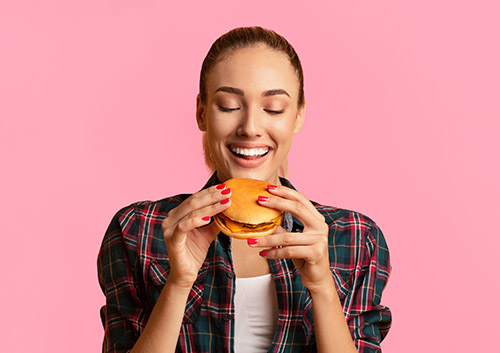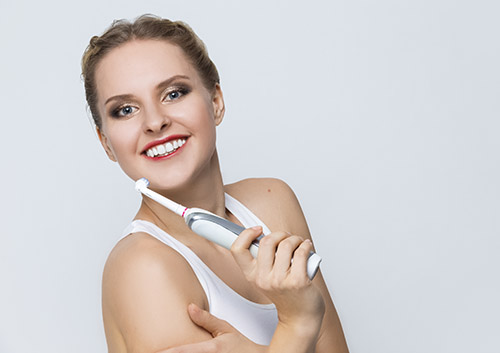How to Celebrate National Junk Food Day
July 3rd, 2025

We mark special times throughout the year to encourage better oral health, like Dental Hygiene Month, and Children’s Dental Health Month, and even National Root Canal Day! This July 21st is National Junk Food Day, and we couldn’t let it pass without some healthy ideas to help you make the best of this not-so-dentally-healthy day.
What makes junk food unhealthy? Most of the foods in this category have high levels of sugars, starches, salts, or fats, which aren’t good for your body in large quantities. When it comes to your dental health in particular, some junk foods are worse than others because they are actively destructive to your tooth enamel.
Foods like candy, cookies, doughnuts, chips, energy drinks, sports drinks, and sodas can have large amounts of sugar, starch, and acid. And a diet filled with sugars, starches, and acids puts your tooth enamel under constant attack.
The bacteria in plaque make acids from the sugars and starches (which break down into sugars) in our diets. These acids then erode the mineral crystals which give our enamel its strength, leaving weak spots which can deepen and become cavities. A steady diet of sweet and starchy foods for you creates a steady diet of sugar for cavity-causing bacteria.
Just like the acids produced by bacteria can erode tooth enamel, acids in food can also strip away the minerals which keep your enamel strong. Sodas, sports drinks, energy drinks, and many fruit juices are often both sugary and highly acidic, making them very damaging to tooth enamel.
So, let’s spend a few moments today to discuss how you can enjoy a bit of junk food every now and then and still take good care of your teeth.
- Limit Sugars, Starches, and Acids
We don’t just mean limiting the number of treats you eat in a day. It’s also a good idea to limit treats to certain times as well. Eat desserts with meals, when saliva production is higher, to help wash away sugary and starchy food particles. Acidic drinks, when sipped throughout the day, are like bathing your teeth in acids. Better to drink a soda or sports drink in one sitting and drink or rinse with water after!
- Brush after Eating Sticky Sugary and Starchy Foods
Sticky foods filled with sugars and starches are double jeopardy for your tooth enamel. Not only are they the foods of choice for plaque bacteria, they also tend to stick to your enamel and between your teeth, giving cavity-causing bacteria more time to work. An after-treat brushing will get rid of any sugary or starchy leftovers as well as removing built up plaque.
- —But Don’t Brush Too Soon After Acidic Foods and Drinks
When you eat or drink something acidic, your enamel is more vulnerable to damage immediately afterward because acids remove minerals from tooth enamel. If you brush right away, even soft bristles can be abrasive. Wait about 60 minutes to brush, which gives your tooth surface time to get strong again with the enamel-building minerals found in saliva.
- Make Water Part of Your Healthy Diet
Easy, available, inexpensive—what’s not to like about water? Oh, and it’s also healthy for your teeth! Rinsing with water after a treat helps remove lingering food particles and acids. And drinking water when you’re thirsty helps you produce saliva. Saliva not only rinses our teeth, it helps neutralize acids and helps replace calcium and phosphate minerals which may have been stripped away by acids.
This July 21st, we’re not really celebrating junk food—we’re celebrating all the things you do to protect your oral health. So, whether you’re indulging today or not, keep your teeth their healthiest by making junk food a rare treat, keeping up with your daily brushing and flossing, and seeing your dentist regularly for checkups and cleanings. Let’s make National Junk Food Day just another day in a year filled with healthy smiles!






